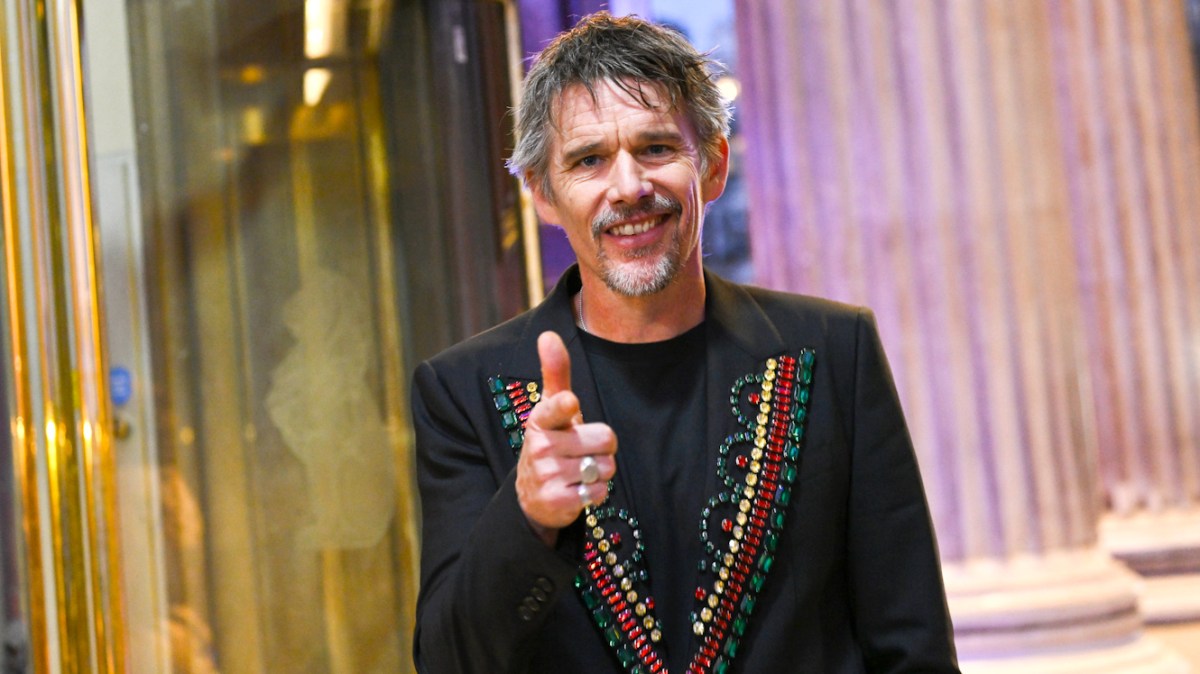Actor/director/poet Ethan Hawke almost scorched Twitter to the ground today with his hot take that superhero movies are good, but also other kinds of movies are good. As Hawke says in a recent interview making the rounds on social media:
“I love superhero movies, I love art house movies. I don’t think there’s a difference between high art and low art. There are movies that people put their heart into, and there are movies that people try to cash in on. And the ones I like are the ones people put their heart into, and you can feel it in a superhero movie or you can feel it in an arthouse movie.”
Hawke is no stranger to the world of superheroes, as he can most recently be seen in the Marvel Studios Disney Plus streaming series Moon Knight, as well as heard portraying Batman in the Cartoon Network series Batwheels, about autonomous vehicles fighting crime in Gotham City. Interestingly, he never mentions whether he put his heart into either. Instead he goes on:
“I was making the joke that if Logan and Dark Knight and Doctor Strange are great art films, what is Fanny and Alexander?”
To answer Hawke’s question, Fanny and Alexander was Ingmar Bergman’s 1982 semi-autobiographical film-turned-miniseries that won the Academy Award for Best Foreign Film. Ethan Hawke, director of the 1994 music video for Lisa Loeb’s Stay, continues:
“Those are my favorite superhero movies, Logan, Doctor Strange, Dark Knight, those are great films. But they’re not the only thing and young people grow up today thinking that’s, you know, that’s all there is.”
Video game v-tuber Jeff Grubb agreed with Ethan Hawke, dubbing him “America’s film-studies boyfriend,” agreeing with Hawke’s central thesis that Americans make films too much of a competition, keeping track of their Rotten Tomatoes score and box office takes.
Meanwhile, another Twitter user is rallying around the man who portrayed “Jolly the Pimp” in Valerian and the City of a Thousand Planets in his cry for more creativity in Hollywood filmmaking:
And there’s no better person to rally filmmakers to give themselves permission to be more creative than the man who did a TED talk on the subject:

